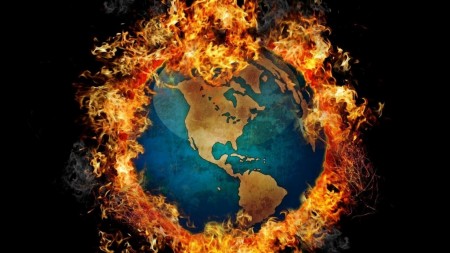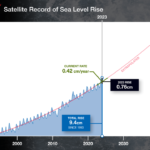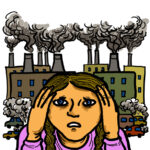October 23, 2015 – Why are places like the Maldive Islands requesting that COP21 in Paris set a 1.5 Celsius (2.7 Fahrenheit) cap as a global warming target? Until now the world has been seeing 2 Celsius (3.6 Fahrenheit) as the upper limit in establishing decarbonization strategies. But Petra Tschakert, a Penn State University scientist, has published in Climate Change Responses an article in which she calls for the adoption of the 1.5 Celsius target.
The 2 Celsius target has been a part of the conversation since global warming became a recognizable challenge in the 1960s and 70s. At that time a doubling of atmospheric CO2 was equated with a temperature rise of 2 Celsius. No one was looking at the risks associated with the temperature rise. It was purely a mathematical construct.
But in the 1990s scientists began to assess what a world 2 Celsius warmer would be like and soon concluded that it represented the tolerable maximum allowable rise in global temperatures above pre-industrial times. It equated anything above 2 Celsius as disastrous for world ecosystems. Eventually the 2 Celsius maximum became ingrained in climate conferences and reports.
But 2 Celsius is not a safe threshold. More than 100 countries considered most vulnerable to climate change would be seriously disrupted with temperatures climbing to that level. Low-lying states, low and middle income countries of the Developing World would be devastated with that kind of temperature rise.
Tschakert argues that the 2 Celsius upper threshold should be abandoned and she is supported by many others with a “ditch the 2” movement emerging as a result.
Remember the 2 Celsius target is a global average. For countries closer to the poles that 2 translates to between 5 and 9 Celsius. And the 2 in Sub-Saharan Africa is the difference between livable and being cooked. The world today is 0.8 Celsius warmer than it was at the beginning of the Industrial Revolution. It would seem that conditions are already becoming difficult for many Developing World countries and low-lying island nations have already experienced the consequences of warming through sea level rise. We have seen the increased frequency of extreme weather events in recent years.
The insurance industry reports new record breaking payouts for claims related to weather and climate almost every year.
A Category 5 hurricane is about to make landfall on Mexico’s Pacific coast. The last decade has seen record Category 5 storms. So what was once rare is becoming more common. This Category 5 storm is packing winds of 320 kilometers per hour (200 mph), the most powerful ever recorded, breaking Hurricane Ethel‘s September 1960 record of 260 kilometers per hour (150 mph).
In arguing for a 1.5 Celsius cap Tschakert and her allies, the island nations, stress the need to stay below thresholds that are seen as producing significant risk. A global mean temperature rise of 1.5 Celsius will not evenly distribute its benign effect. As I have described in a previous posting there are many suspected tipping points along the way that will produce devastating impacts. It is therefore better to set a lower temperature target “to prevent severe, pervasive, and potentially irreversible impacts while allowing ecosystems to adapt naturally, ensuing food production and security, and enabling economic development to proceed in a sustainable manner.”
A final observation. Is 1.5 Celsius achievable based on the amount of carbon dioxide and other greenhouse gases being emitted today? Some climate scientists argue that the course is already set to a 2 or higher Celsius rise based on legacy and lack of progress in decarbonization. Tschakert observes, “negative impacts of climate change under a 0.8 Celsius temperature increase are already widespread, across the globe, and that danger, risk, and harm would be utterly unacceptable in a 2 Celsius warmer world, largely for ‘them” – the mollusks, and coral reefs, and the poor and marginalized populations, not only in poor countries – even if this danger has not quite hit home yet for ‘us’.”




















